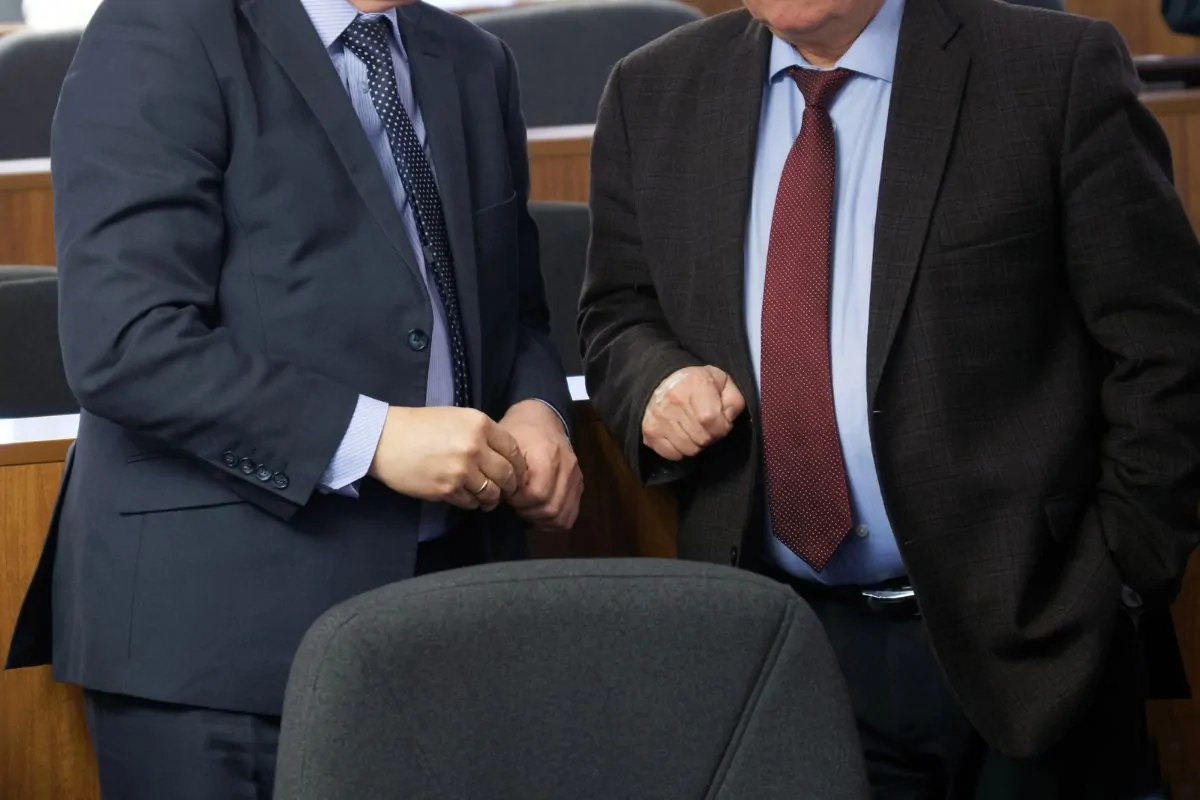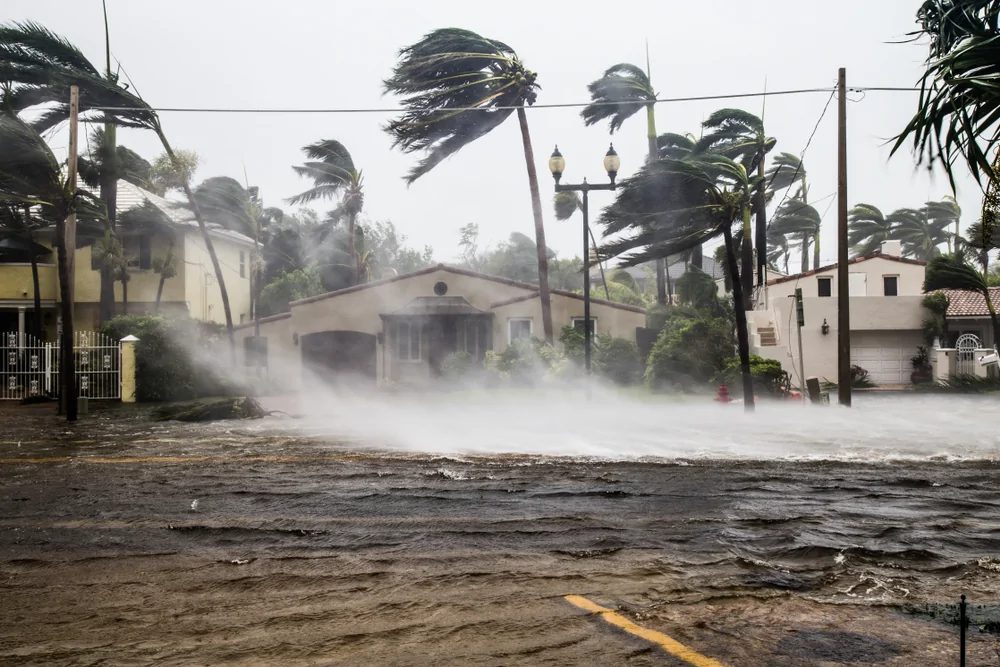The drastic climate change has pushed scientists to break their silence and take on a more active role as advocates, warning the world about what lies ahead and calling for immediate action.
World Scientists' Warning of a Climate Emergency

Illustration. Image credit: Shutterstock
It was in 2018 when Oregon State University ecologist Bill Ripple stumbled upon photographs of Paradise, California, reduced to ashes by a wildfire. The flames had consumed homes, leaving only contorted metal and shattered glass behind. This sight inspired Ripple to embark on a new academic paper, which he titled "World Scientists' Warning of a Climate Emergency."
Scientists Stand Together

Illustration. Image credit: Shutterstock
Ripple then shared it with his colleagues, asking if any of them wanted to add their signatures. When the paper eventually made its way into the journal Bioscience in 2019, it already bore 11,000 signatures from scientists across the globe, and that number has since grown to over 15,000.
From Ecologist to Environmental Advocate

Illustration. Image credit: Shutterstock
“My life completely changed,” Ripple stated. He stars in a 30-minute documentary by Oregon State University, fielding a barrage of media requests and global scientist collaborations.
He recently dropped a fresh climate system paper titled "Entering Uncharted Territory."
Breaking the Silence

Illustration. Image credit: Shutterstock
“Scientists are more willing to speak out,” Ripple said. “As a group, we’ve been pretty hesitant, historically.” However, he continued, “I feel like scientists have a moral obligation to warn humanity.”
Speaking Out with Bold Language

Illustration. Image credit: Depositphotos
Following a few years marked by record-breaking temperatures and extreme weather events, Ripple and fellow climate scientists, who were previously hesitant to participate in public discourse, now employ strong and urgent language to portray the planet's warming.
Critical Findings

Illustration. Image credit: Shutterstock
Just recently, scientists dropped a paper revealing that the global "carbon budget," which represents the quantity of greenhouse gas emissions the world can release without exceeding a 1.5-degree Celsius increase in global temperatures, has diminished by a third. If we keep emitting at the same pace, we've got only 6 years before we blow past that make-or-break temperature limit.
Breaking Down the Numbers

Illustration. Image credit: Shutterstock
During a call with reporters, Joeri Rogelj, a climate scientist from Imperial College London, stated: “There are no technical scenarios globally available in the scientific literature that would support that that is actually possible, or can even describe how that would be possible.”
Out of the Ordinary

Illustration. Image credit: Shutterstock
Tim Lenton, one of the co-authors on Ripple's latest paper and a professor of earth system science at the University of Exeter, pointed out that 2023 has seen temperatures so far outside the usual range that “they’re very hard to rationalize.” He added, “This isn’t fitting a simple statistical model.”
Why 'Emergency' is the New Climate Term

Illustration. Image credit: Depositphotos
Lenton is not shy about using words like "emergency" or "climate and ecological crisis." He explained, “If you say ‘urgent’ to a politician … that isn’t really enough.”
Stay Neutral, they Said

Illustration. Image credit: FellowNeko via Depositphotos
Jacquelyn Gill, a professor of climate science and paleoecology at the University of Maine, recalled that during her PhD in the late 2000s, the seasoned academics cautioned her against straying from the scientific aspect when dealing with the media or the public.
Out of the Lab

Illustration. Image credit: Depositphotos
“We were actively told if we start to talk about solutions, if we start to talk about the policy implications of our work, we will have abandoned our supposed ‘scientific neutrality,’” Gill said. “And then people will not trust us anymore on the science.”
A New Era

Illustration. Image credit: Shutterstock
Just a decade ago, climate scientists were still uncertain about their role in conveying the threats of increasing temperatures, as mentioned by Susan Joy Hassol, a science communication expert who has collaborated with climate researchers for many years.
The ‘Crisis’ Stage

Illustration. Image credit: Shutterstock
“I think at least some of them felt that scientists communicate through IPCC reports,” Hassol noted, in reference to the United Nations Intergovernmental Panel on Climate Change. She added, “We do our science, we publish, we put together these reports, and it’s kind of up to other people to listen.”
However, she notes that things have shifted, “We have reached this stage of crisis.”
The Message Was Clear

Illustration. Image credit: Shutterstock
“The problem is not that scientists haven’t been communicating clearly enough,” Hassol said. “We communicated pretty darn clearly. Anyone who wanted to hear the message — it was there.”
A Wake-Up Call

Illustration. Image credit: Shutterstock
In 2015, a mere 32 papers in the Web of Science research database used the term "climate emergency." Fast forward to 2022, and you've got a whopping 862 papers incorporating the phrase. This perhaps conveys a powerful message from scientists to the world, urging us to pay attention before it's too late to listen.
More From Womenio

Image credit: Dzmitry Held via Canva.com
What you rarely see in fashion magazines is what women wear that men love. Here are 21 Things Women Wear That Men LOVE
20 Weird Things People Find Extremely Attractive That Most DON'T

Illustration. Image credit: katyasmailey via Canva.com.
Everyone's got their own idea of what they find attractive, and sometimes it's something a little unconventional. Here are 20 Weird Things People Find Extremely Attractive That Most DON'T
30 Things Men Should Wear to Drive Women WILD - (According to Women)

Illustration. Image credit: Shutterstock
Here is what you should wear to drive them crazy: 30 Things Men Should Wear to Drive Women WILD - (According to Women)
25 Popular Things Women Wear That Men Secretly Hate

Image credit: Depositphotos
From your favorite accessories right down to the choices of footwear, here is a list of fashion items men wish women stopped wearing: 25 Popular Things Women Wear That Men Secretly Hate
33 Dirty Company Secrets Revealed By Employees That We Are Not Supposed To Know

Illustration. Image credit: Shutterstock
Learn what various industries tried to hide from outsiders straight from the employees: 33 Dirty Company Secrets Revealed By Employees That We Are Not Supposed To Know
